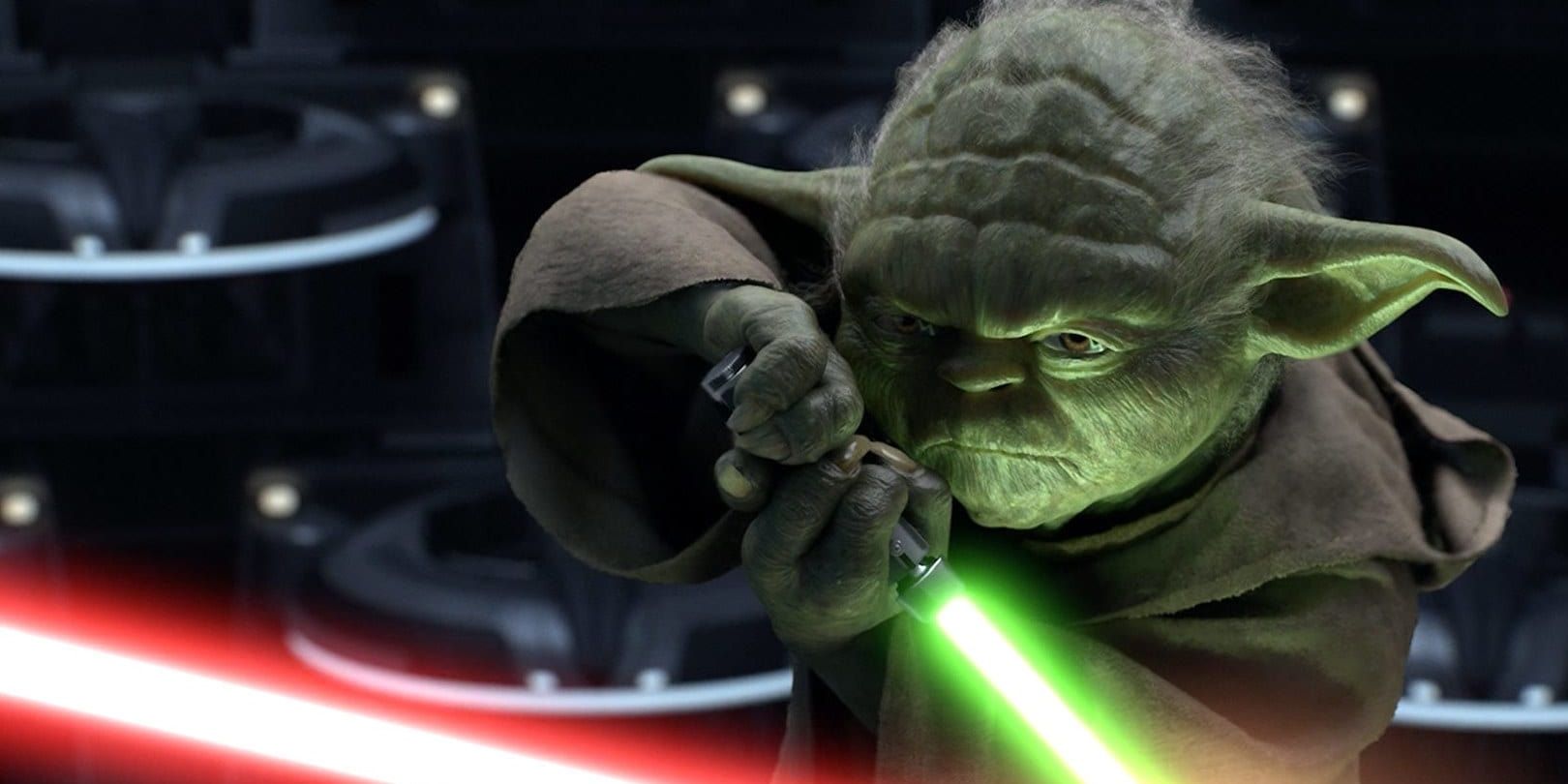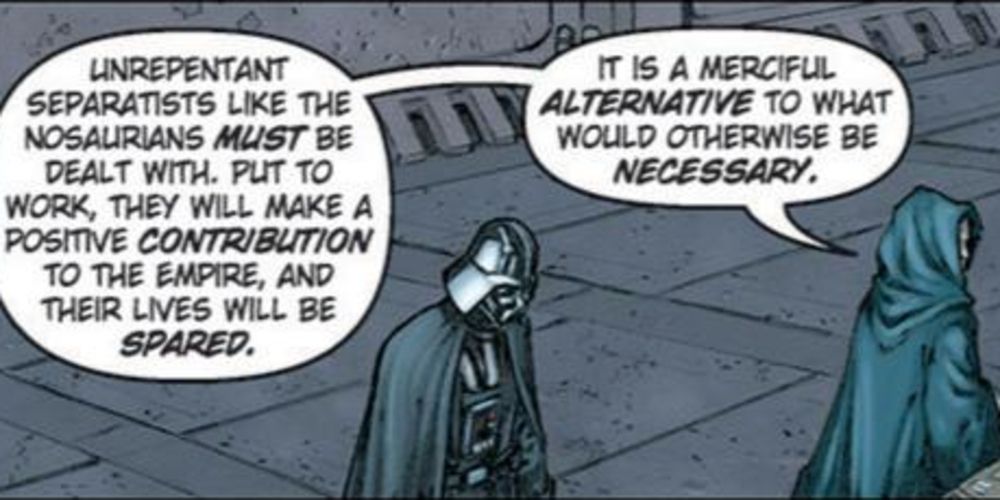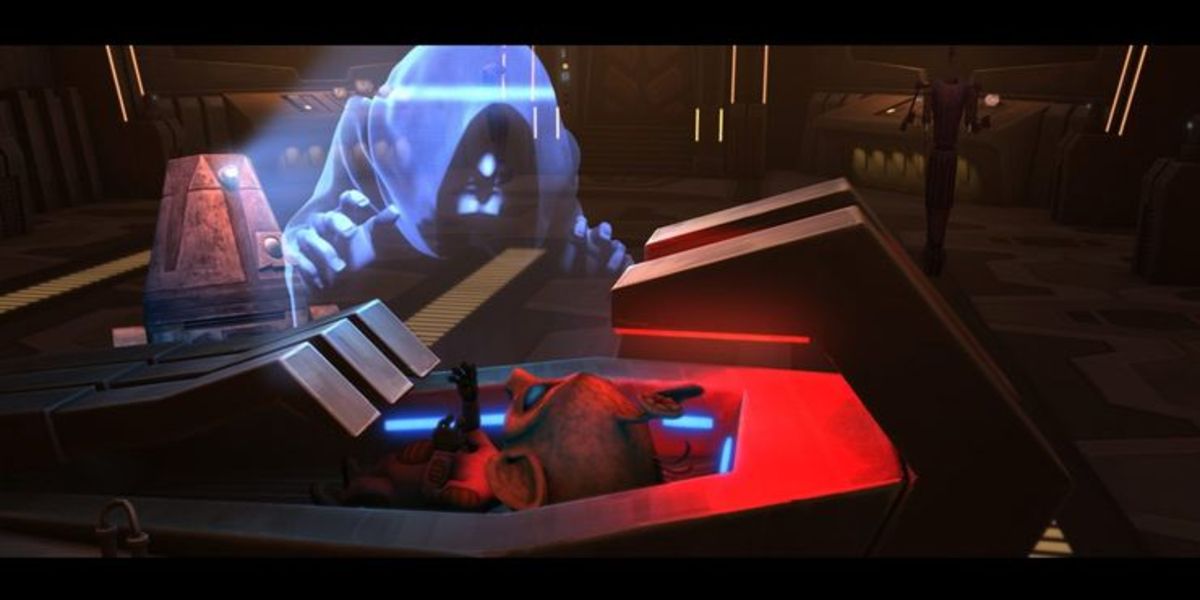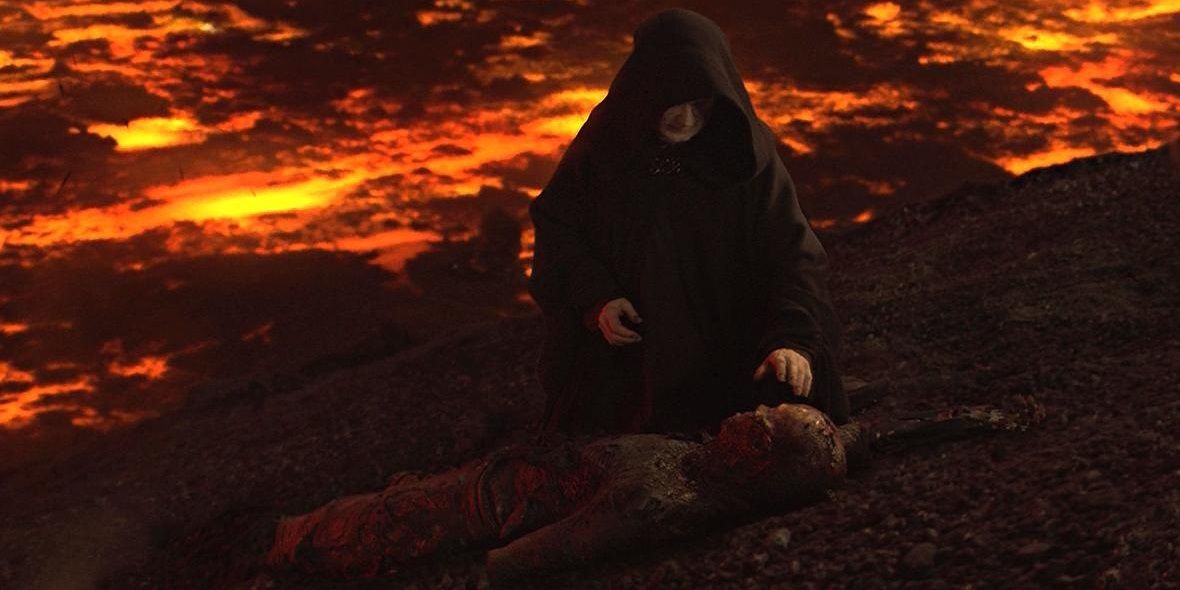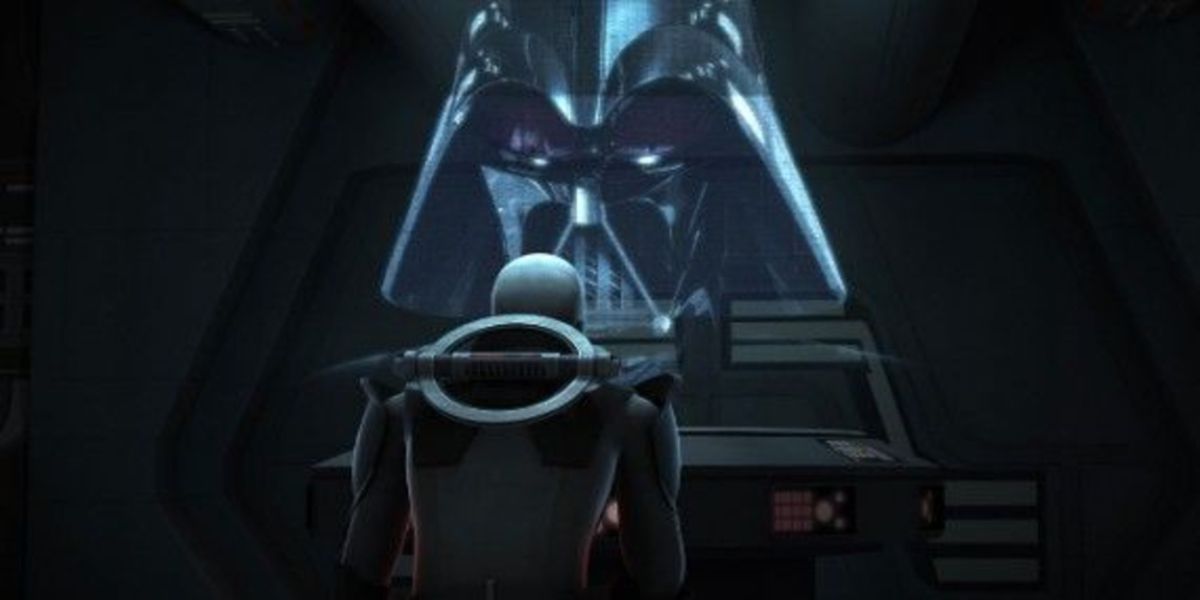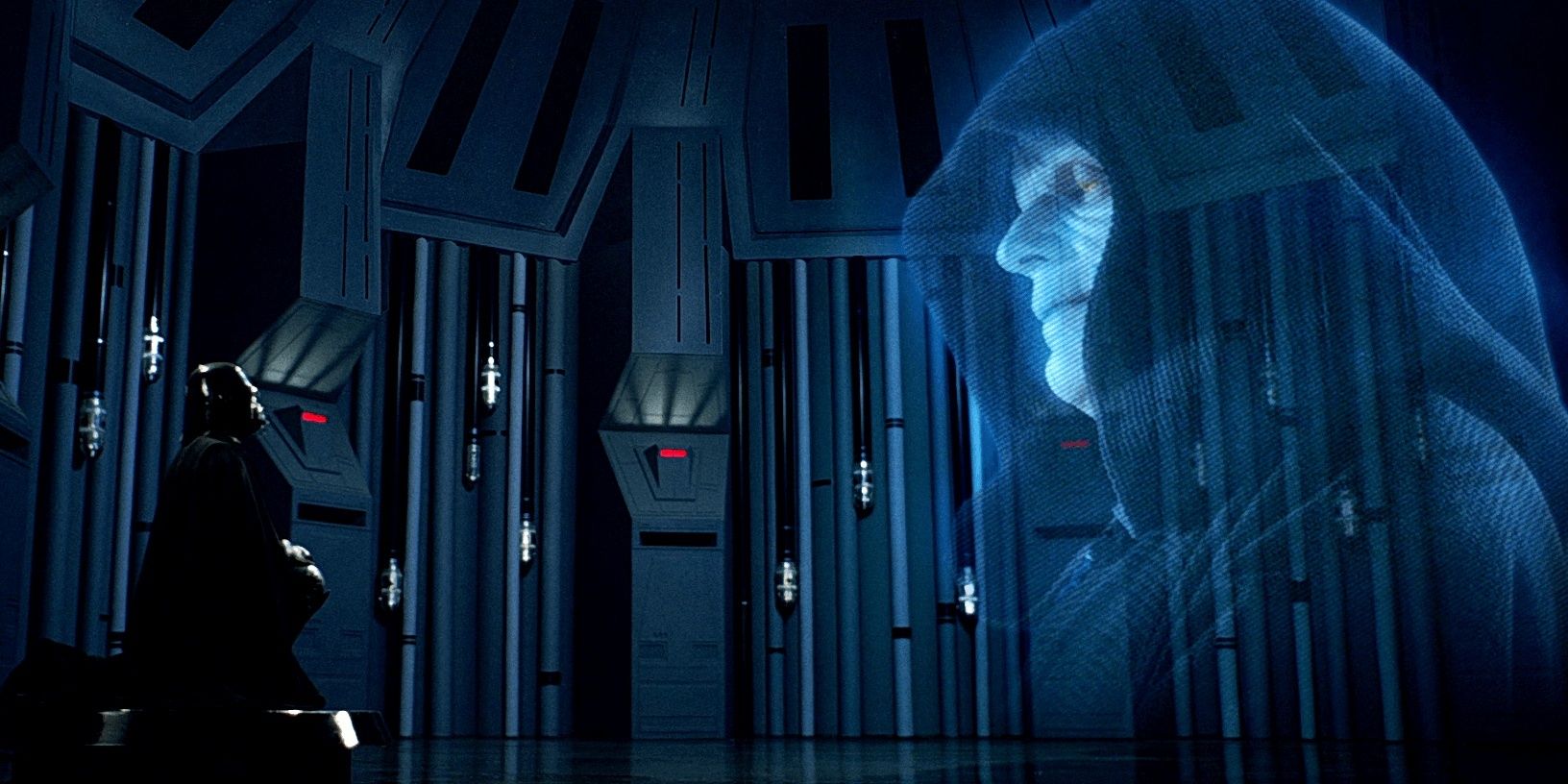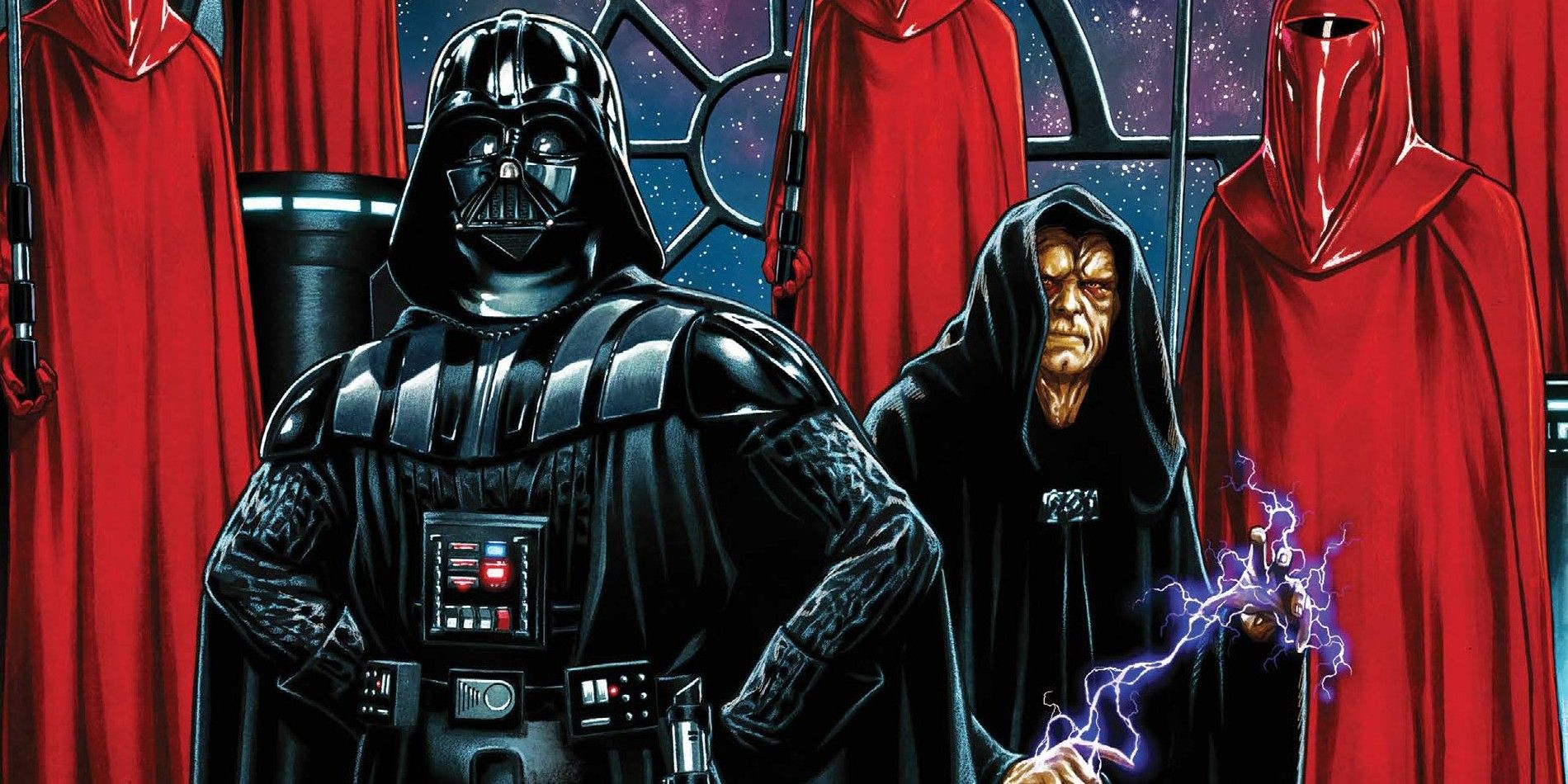Sheev Palpatine had the distinction of being one of the most powerful men in galactic history, a reputation he garnered from his considerable political influence as a Chancellor of the Republic Senate, and his secret identity as a Sith Lord known as Darth Sidious. But part and parcel of Palpatine's villainy was his bob vivant lifestyle and incredible charm. His ability to be exceedingly amiable when it suited him was one of the main reasons no one suspected the humble Senator of Naboo of orchestrating insurrection between the Confederacy of Independent Systems and the Republic, an act which resulted in the Clone Wars, the annihilation of the Jedi Order, and his becoming the first Galactic Emperor.
On rare occasions, Palpatine was known to show a version of sentimentality and even kindness. There were a few people whom he counted among his inner circle, and for whom he permitted leniency. Darth Vader of course was one, but there were others in particular situations which prompted Palpatine to expose his merciful side.
Letting Master Yoda Live
Once Master Yoda learned that Emperor Palpatine and Darth Sidious were one and the same person, he sought to put an end to the Emperor's reign. They battled in the Galactic Senate chambers, and the epic duel culminated in Master Yoda barely escaping with his life. Surprisingly, Palpatine never bothered to look for him.
By letting the diminutive Jedi live, he inadvertently paved a way to his own demise over two decades later when, after Yoda trained precocious Force adept Luke Skywalker, he began bringing about the return of the Jedi Order.
Sparing The Nosaurians
In a Legends comic series involving Darth Vader's reaction to Emperor Palpatine selling Nosaurians as slaves, Palpatine explained to his apprentice -who was still reeling from painful memories of his own enslavement on Tatooine- that the Empire's involvement in the slave market in the Outer Rim was not as bad as it seemed.
Not only did Palpatine refer to the act as a way for the Nosaurians to make a "contribution to the Empire", but as a much more merciful end for them than being killed for being former Separatists. It didn't convince Vader, but it showed how Palpatine used mercy as a tactic.
Comforting Infants
In The Clone Wars series, Palpatine concocted a grand scheme to kidnap Force sensitive younglings from around the galaxy and have them brainwashed into becoming loyal servants to himself and the burgeoning Empire. He had the children brought to Mustafar, where his droids would surgically alter their brains.
Palpatine observed the procedures himself through hologram, and as each one wailed in terror and confusion, he offered them comfort and reassurance. For all his sociopathy, Palpatine could mimic concern and empathy well enough to assuage a crying infant.
Rebuilding Darth Vader
When Palpatine dispatched Darth Vader to Mustafar to kill what remained of the Separatist leaders in Star Wars: Episode III - Revenge of the Sith, he did so with full confidence that the newly minted Dark Lord of the Sith would prevail unencumbered. He didn't anticipate Obi-Wan Kenobi following Vader there and engaging him in combat, a duel which resulted in him nearly dying.
Palpatine could have left Vader to die on the shore of one of Mustafar's lava rivers, and given the way he callously let Darth Maul and Darth Tyranus meet their ends it seemed appropriate, but he decided to save Vader's life. In the Special Features for the movie, actor Ian McDiarmid thought the moment where Palpatine rushed to Vader's side and touched his cheek was the only moment in the Skywalker saga he ever displayed true kindness.
Giving Vader Control Of The Inquisition
Palpatine wasn't fully convinced that Darth Vader was capable of being his apprentice after being left for dead on Mustafar. Nevertheless, despite his shaken faith, he granted the Dark Lord leave to train the Imperial Inquisition. Ultimately Palpatine knew the Empire would be stronger by having a cruel figurehead like Vader at its forefront.
Vader did not disappoint Palpatine, and made sure that the Emperor knew his confidence in him was not misplaced in assembling the Jedi hunters. The Inquisitors became some of the most fearsome warriors in the galaxy, as evidenced by their appearances in Star Wars: Rebels and Jedi: Fallen Order.
Allowing Vader To Capture Luke Instead Of Kill Him
After Darth Vader became aware of the existence of Anakin Skywalker's son, Luke Skywalker, a conflict rose within him. He had always thought any offspring he had in his former life had died with his wife Padme, but the presence of young Luke meant his loyalties would be pulled from the Emperor in favor of protecting his family.
Palpatine warned ominously that, "The son of Skywalker must not become a Jedi.", but he didn't tell Vader he had to kill him. He allowed Vader to work on turning the boy to the dark side so that he would become a powerful asset.
Letting Vader Live After He Used The Force Against Him
In an issue of the Marvel's Darth Vader comic book series, Emperor Palpatine seemed to display some semblance of empathy towards Vader's loss of Padme. Master and apprentice had gotten into an argument after the Dark Lord went searching for the truth about his former spouse's death, resulting in Vader using the Force against Palpatine, an act which would have ended in death had he been anyone else.
Palpatine didn't conceal his rage, and unleashed Force Lightning on Vader for his effrontery, crippling him in the process, and leaving him on Mustafar to contemplate his next choices. He nevertheless called him "friend", and showed that he was capable of a modicum of sentimentality despite his cruelty.
Not Killing Thrawn For Being Insubordinate
In The Thrawn Trilogy by Timothy Zahn, a series of novels from Star Wars Legends that chronicled the fall of the Empire after Return of the Jedi, Palpatine had a complicated relationship with Grand Admiral Thrawn, the brilliant Chiss military strategist that took control of the Imperial Remnant in the wake of Palpatine's death.
In the second novel, Thrawn recalled a time when the Emperor ordered him to attack an enemy base the Imperial Fleet wasn't outfitted to overtake. Thrawn refused to heed the Emperor's orders and instead of killing him for such insubordination, the Emperor only imprisoned him. Another commander was sent in his place and as expected, the mission was a disaster, costing the Empire valuable resources.
Changing The Fate Of Gallius Rax
Gallius Rax would become known as "The Man Who Inherited The Empire", but before that he was just an orphan boy found by Sheev Palpatine on Jakku. The novel Star Wars: Aftermath explained that Rax met Palpatine by trying to stow away on his ship, and Palpatine offered the boy a choice; he could either kill him, or put the boy in charge of guarding the archaeological dig site he had built on Jakku connected to Operation Cinder.
Rax chose the latter and became Palpatine's protégé. Eventually, he became the Grand Admiral of the Imperial Navy, and had direct control over it and the Shadow Council following Palpatine's perceived "death" and the Empire's fall. Palpatine always instructed that the two should be on a first-name basis, as "even an emperor must have friends, after all".
Letting His Son Leave Exegol
Palpatine never had any naturally born offspring, but a "son" of sorts was created for him by Sith cultists on Exegol and appeared in Star Wars: The Rise of Skywalker. It was a genetically altered clone body, which was made for him to inhabit after the disastrous version he was forced to embody after being resurrected. Palpatine was proud of this "son", despite the fact that he wasn't Force sensitive.
Rather than kill him for being a disappointing vessel, Palpatine allowed him to leave Exegol, giving him the chance to continue the Palpatine bloodline by natural methods elsewhere in the galaxy. It was lucky that he did, because it was through natural means (which could therefore involve midichlorians) and not cloning that his son had Rey, one of the most powerful Force users the galaxy had ever seen.


